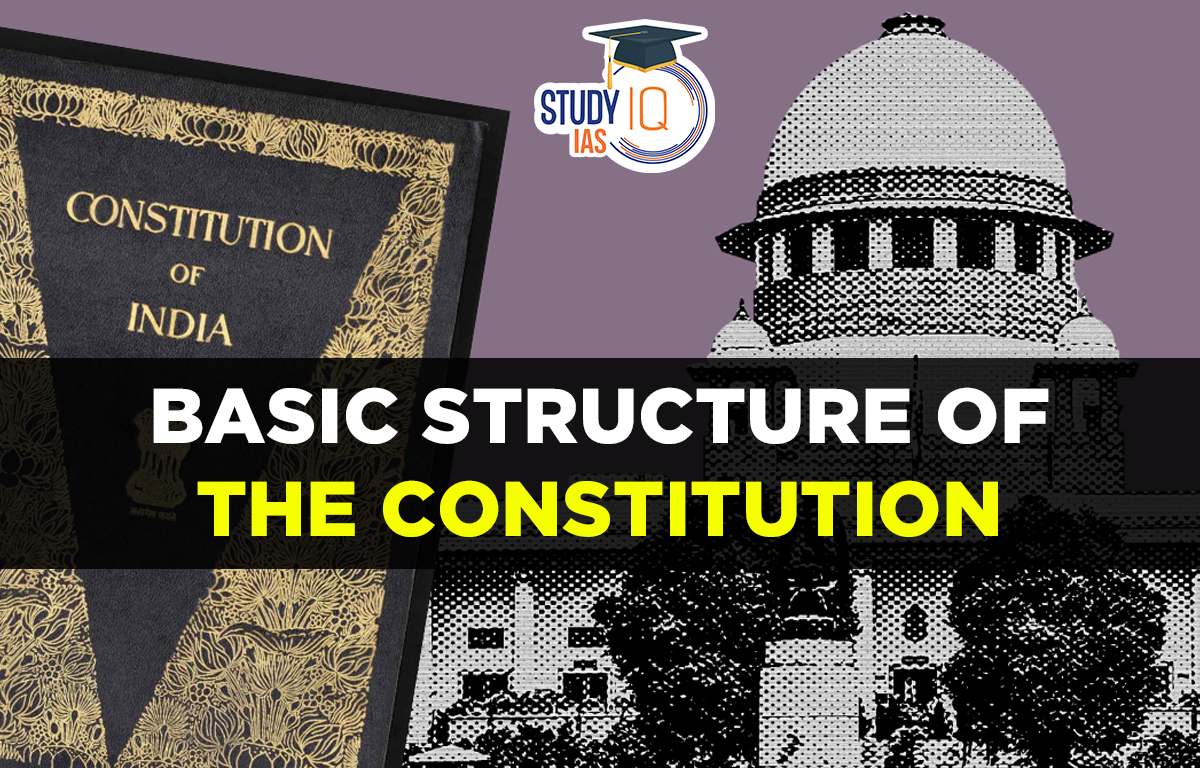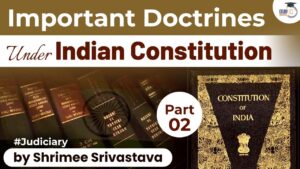Table of Contents
What is the Basic Structure Doctrine of Indian Constitution?
- The basic structure doctrine is a common law legal doctrine that the constitution of a sovereign state has certain characteristics that cannot be erased by its legislature.
- There is no mention of the term “Basic Structure” anywhere in the Constitution of India. The idea is evolved to protect and preserve the spirit of the constitution document.
Origin of the Basic Structure Doctrine in Indian Constitution

Kesavananda Bharati Case 1973
- In Kesavananda Bharati case, a relief was sought against the Kerala government vis-à-vis two state land reform laws, which imposed restrictions on the management of religious property.
- The case was challenged under Article 26, concerning the right to manage religiously owned property without government interference.
- Question underlying the case: Was the power of Parliament to amend the Constitution unlimited? In other words, could Parliament alter, amend, abrogate any part of the Constitution even to the extent of taking away all fundamental rights?
- The Constitutional Bench in Kesavananda Bharati case ruled by a 7-6 verdict that Parliament could amend any part of the Constitution so long as it did not alter or amend the basic structure or essential features of the Constitution.
- However, the court did not define the term ‘basic structure’, and only listed a few principles — federalism, secularism, democracy — as being its part.
Evolution of the Basic Structure Doctrine in Indian Constitution

Elements of the Basic Structure Doctrine
- The ‘basic structure’ doctrine has since been interpreted to include:
- The supremacy of the Constitution,
- The rule of law,
- Independence of the judiciary,
- Doctrine of separation of powers,
- Sovereign democratic republic,
- The parliamentary system of government,
- The principle of free and fair elections,
- Welfare state, etc.
Arguments related to the Basic Structure Doctrine
| Argument for | Argument against |
| Its proponents have hailed the concept as a safety valve against majoritarianism and authoritarianism. | Critics of the doctrine have called it undemocratic, since unelected judges can strike down a constitutional amendment. |


 Right to Free Movement, Restrictions and...
Right to Free Movement, Restrictions and...
 Schedules of Indian Constitution, 12 Sch...
Schedules of Indian Constitution, 12 Sch...
 Important Doctrines under Indian Constit...
Important Doctrines under Indian Constit...





















